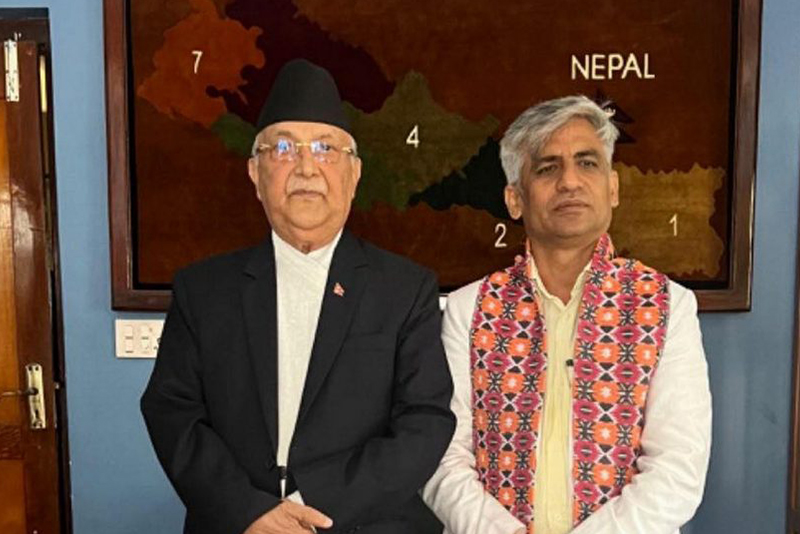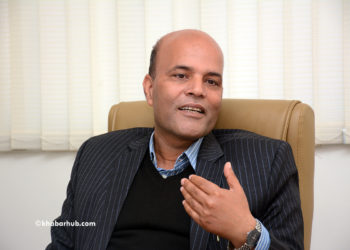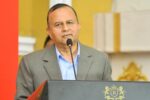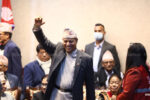BIRATNAGAR: The expansion of government in Koshi Province has hit a roadblock as Chief Minister Kedar Karki’s proposal to encompass other parties, including the Maoist Center, met with resistance from the CPN-UML.
The parties – Nepali Congress and UML — failed to resolve the deadlock hindering the government’s expansion.
CPN-UML Koshi chief whip Rewathi Raman Bhandari said they are holding a discussion with Chief Minister Karki today.
It should be noted that the meeting held between Chief Minister Karki and UML leaders remained inconclusive on Monday.
Both sides have remained adamant with the CPN-UML stating that the government in Koshi Province should be solely composed of the UML and the Nepali Congress while Chief Minister Karki is in favor of giving the government a complete shape by including other parties as well.
Amid these developments, it is critical to note that Karki’s appointment as Chief Minister stemmed from the fallout within the ruling coalition parties, triggered by the decision to appoint CPN-Maoist Center’s Indra Angbo as the chief minister, which led to a rebellion within the Congress ranks.
UML’s Bhandari said in the case of Koshi, the clear point is that Nepali Congress and UML should run the government and not involve other parties.
“We reiterated our position with the Chief Minister,” Bhandari said.
Despite their support for Chief Minister Karki, UML leaders remain adamant that their support should not be construed as a green light for incorporating other parties into the government.
The ongoing political tug-of-war in Koshi Province intensifies as Chief Minister Karki finds himself caught between the expectations of the Nepali Congress, his own party, and the adamant stance of the UML.
Having initially secured his position with the support of 39 UML MPs, Karki now grapples with the challenge of forming a balanced and inclusive government, a demand that has met staunch resistance from the UML.
Despite the pressure from both sides, CM Karki remains resolute in his efforts to shape a government through consensus.
However, the stalemate has resulted in the delayed expansion of the government, leaving two ministers, including the government spokesperson, in a state of limbo without defined responsibilities.
Chief Minister Karki has urged UML leaders to consider forming an all-inclusive government for the sake of political stability.
However, the UML leaders, who initially supported Karki’s ascension to power, firmly demanded that the government solely comprise the UML and the Nepali Congress, dismissing the possibility of involving other parties.
As discussions continue, the stalemate persists, leaving the government’s expansion uncertain.
A meeting between Nepali Congress leaders and the UML, scheduled for today, aims to break the impasse.
Amid these developments, it is critical to note that Karki’s appointment as Chief Minister stemmed from the fallout within the ruling coalition parties, triggered by the decision to appoint CPN-Maoist Center’s Indra Angbo as the chief minister, which led to a rebellion within the Congress ranks.
While Chief Minister Karki remains under pressure to adhere to the ‘consensus’ established by the top leaders in Baluwatar, including Prime Minister Pushpa Kamal Dahal and Nepali Congress President Sher Bahadur Deuba, the UML’s insistence on a two-party government creates a political deadlock.
Despite the mounting pressure to expand the government, Chief Minister Karki has yet to relent on his stance of forming an all-party government, leading to a protracted state of uncertainty in the province.









Comment